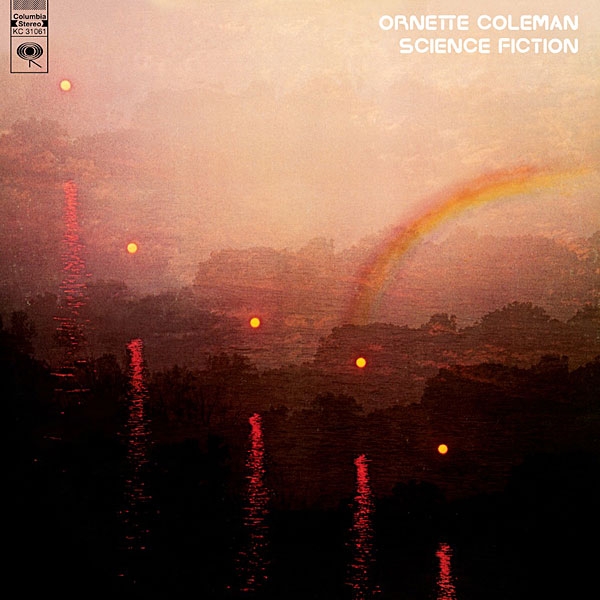| Columns Retired Columns & Blogs |
While I disagree that Lee bettered Lugosi (heresy!!!), thanks for a beautifully written remembrance.

Some conjunctions are just too momentous to be a coincidence, and the powerful loss of saxophonist Ornette Coleman and actor Sir Christopher Lee, on the same day, Thursday, June 11, 2015, seems connected. Both lived long lives and became masters of their craft. Both made their reputations dabbling in what amounts to a kind of science fiction, Lee by playing supernatural characters and Coleman by playing music often charitably described in the beginning as being alien. Both also evoked a bit of horror, Lee as the most memorable Dracula of them all (with apologies to Schreck, Lugosi and Langella) and Coleman as someone whose early 60s Atlantic recordings scared and shocked more than few listeners of bebop, cool, big bands and everything else considered jazz in those days. Coleman created his own musical language, much as Lee made lent a singular, ominous formalism to evil characters like the wizard Saruman in the The Lord of the Rings or the power mad Sith Lord Count Dooku in Star Wars. And, of course, in the Hammer Films rendering of the undead Count. On film and on record, both Lee and Coleman had a large presence, they filled out their respective mediums, and yet both were soft spoken offstage.
Unlike Lee though, Coleman spoke in his own lexicon and had a wardrobe that included all the colors of the rainbow. While records like The Shape of Jazz to Come and Change of the Century are more well known landmarks, it’s Science Fiction, a title that rings with extra resonance given the Lee and Coleman passings, that’s always spoke the most to me. Remastered by Bernie Grundman and pressed at Pallas in Germany, a recent numbered LP reissue of this strange and essential masterpiece by ORG Records is superb sonically. For completists there is also the two CD Complete Science Fiction Sessions that was released by Sony in 2000.
While the Atlantic records brim with fire and change, Science Fiction, Coleman’s 1972 debut for Columbia is a varied set that contains a number of different facets of his musical genius. “Rock the Clock,” a funky, fast cacophony which features Coleman on trumpet and violin, tenor sax player Dewey Redman playing a musette and Charlie Haden using a wah-wah pedal on his bass. Then there’s the quintet recording of “The Jungle is a Skyscraper” whose opening scramble of instrumental voices is as close to an actual alien language as we are ever likely to hear, and which unfolds into a fast-paced near duo between Coleman’s alto rolling and turning and growling above Ed Blackwell’s intensely rhythmic drumming. On the title cut, the band roils and cries behind the calming voice of poet David Henderson while samples of a baby crying echo in the background. This is also an album that shows what an effective accompanist Coleman could be, as he, Redman, Haden and drummers Blackwell and Billy Higgins and trumpeters Gerard Schwarg and Carmon Fornarotto, back Indian vocalist Asha Puthli on a pair of tunes.
Just as vampires, not to mention Lee’s eerie and unforgettable portrayal, do not grow old and dated, Coleman’s Science Fiction is futurism that still sounds as fresh and forward looking as the day it was recorded. And just as the vampire’s bite turns the victim’s world upside down, music like this rarely failed to do the same thing to a jazz world trying to anticipate his next decisive artistic turn. Difficult to listen to and even harder to explain in words, Coleman, thankfully, was always uncommonly eloquent about his musical vision. Two quotes are instructive. In his Ben Ratliff-written obituary in The New York Times, he is quoted as saying about the musicians like bassist Haden and trumpeter Don Cherry that he worked with, on and off, for the most fertile years of his career,
“I don’t want them to follow me,” he explained. “I want them to follow themselves, but to be with me.”
In Robert Palmer’s original liner notes to Science Fiction (reproduced on the back of the ORG reissue) Coleman distills his ambitions to this couplet, “Rather than being a success myself, I want the music to be successful.” Mission accomplished. Somewhere Lee is ditching his fake fangs and complaining about being typecast as Bram Stoker’s creation, while Ornette laments that he didn’t get all his ideas out, transcribed and recorded. Both changed their worlds and both will be missed.

While I disagree that Lee bettered Lugosi (heresy!!!), thanks for a beautifully written remembrance.